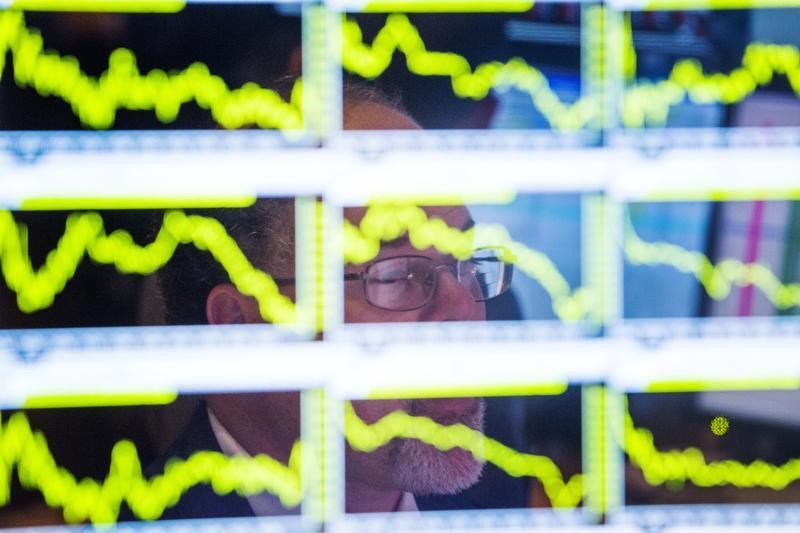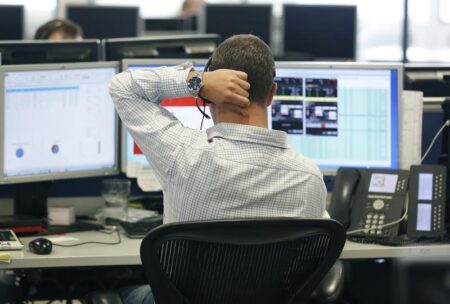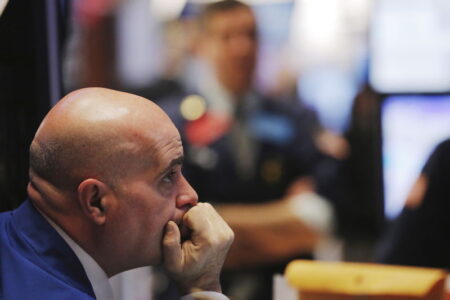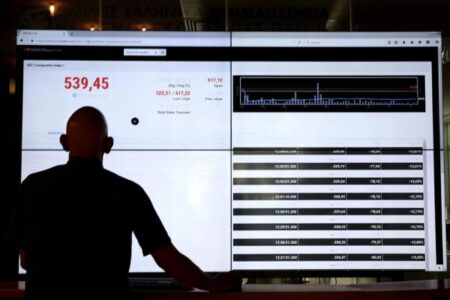By Emma-Victoria Farr, Lucy Raitano and John O’Donnell
FRANKFURT/LONDON (Reuters) – It was late on Tuesday evening in Europe and investors’ suspicions were growing. The German government’s efforts to sell Commerzbank (ETR:) shares in a market placement, on the face of it, a simple task, were stalling.
They had expected the deal to wrap up soon after JPMorgan and Goldman Sachs started taking orders earlier that afternoon, according to a source familiar with the transaction and emailed updates the banks sent to investors, seen by Reuters. Sources requested anonymity because the sale details were private.
But it wasn’t until the early hours of Wednesday that the news landed.
In a surprise — and rare move — all the shares, worth about 700 million euros ($771.3 million), had gone to one buyer, and Goldman was no longer involved in the sale.
Italy’s UniCredit, led by CEO Andrea Orcel, had scooped up the whole 4.5% stake by outbidding others.
What’s more, the lender had also quietly purchased another 4.5% on the open market, making UniCredit one of the biggest shareholders and opening the door to a potential deal with Commerzbank, which had rushed in Goldman as defence adviser.
Some German government officials said they were blindsided by Orcel’s move. But there has been long-standing chatter about the Italian bank, which is flush with excess capital and already owns German lender HVB, being keen for Commerzbank if it had the right opportunity. And European regulators have long favoured consolidation in a sector plagued by low profitability.
The announcement by Berlin last week that it wanted to sell some of its 16% crisis-era holding in Commerzbank appears to have given Orcel, the consummate M&A banker that chance.
“It’s unlikely UniCredit stumbled into this in the way it’s being painted in the market, it’s likely to be a lot better coordinated than at first glance and there is likely to be a complex underlying long-term strategy at play,” said Mark Kelly, CEO of MKP Advisors.
UniCredit declined to comment for this article. Officials for JPMorgan and Goldman Sachs declined to comment on their role in the transaction.
UniCredit paid a 4.8% premium to the closing price on Tuesday, spending about 700 million euros on the government stake, according to a term sheet. JPMorgan was obliged to accept the best offer in the interest of a fair and transparent process, another person said, who was not authorised to speak publicly.
Meanwhile the other bookrunner on the sale, Goldman, had to step away from the transaction because of the potential conflict, a third person added. It was now leading the defence for Commerzbank.
As the news broke on Wednesday, Orcel approached Commerzbank management with a view to explore potential talks about a merger, another source with knowledge of the situation told Reuters.
UniCredit has said it is seeking approval to buy more than 9.9% of Commerzbank should it want to.
“From here, the ball is very much in UniCredit’s court, and all eyes will be on whether it proceeds with increasing its stake in Commerzbank above 9.9%,” said Filippo Alloatti, Head of Financials (Credit) at Federated Hermes (NYSE:).
Other European banks may also be considering their strategic options, including Deutsche Bank, which declined to comment on Wednesday.
Commerzbank has wasted little time. It hastily convened a board meeting on Wednesday during which it discussed how to keep the German lender independent, exploring defence strategies to resist a potential bid from UniCredit, a source said, asking to remain anonymous because the discussions were private.
Germany is likely to hit pause on any further share sales after being taken off-guard, a government source said, adding that the bank and the government needed to assess what is now a new situation. Trade unionists too, fearing heavy job losses, also oppose a tie-up.Commerzbank shares closed up 16.6% at 14.69 euros in Frankfurt, while UniCredit’s closed 0.2% higher in Milan.
($1 = 0.9075 euros)
Read the full article here
















